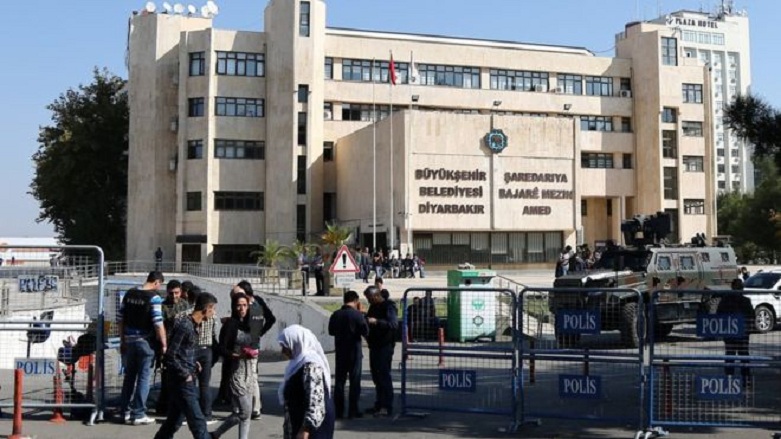Pro-Kurdish party likens Turkish crackdown to colonialism

ANKARA, Turkey (Kurdistan24) – Turkey’s second largest opposition block the pro-Kurdish Peoples’ Democratic Party (HDP) likened an ongoing government crackdown on its leaders, lawmakers, and mayors to European colonialism in Africa.
At a press conference held after an emergency HDP central executive committee meeting over the arrests and removals of mayors of Van and Mardin, spokesperson Ayhan Bilgen said government policies were reminiscent of French colonialism in Algeria.
“The policies of France in Algeria, the way it appointed governors to the colonized Algeria are similar to Turkish policy” in the Kurdish region, explained Bilgen, according to a Kurdistan24 reporter present at the HDP press conference.
Bilgen slammed Turkey’s President Recep Tayyip Erdogan, who was on an official visit to Pakistan, for calling for a solution to the Kashmir conflict in line with the will of the Kashmiris while denying the same right to the Kurdish people.
The HDP spokesperson said the Interior Ministry’s seizure of the administrations of Kurdish municipalities meant Turkey was refusing to recognize the will of the people.
He added the appointment of government trustees instead of elected mayors was a continuation of early 20th century “Turkification” plans.
Additionally, Bilgen showed the reporters a map on which 103 municipalities won by the sister party Democratic Regions Party (DBP) were highlighted.
The map covering most of eastern Turkey (or northern Kurdistan as referred to in Kurdish) also showed the cities and towns, among them Diyarbakir, Mardin, and Van whose elected local officials Turkey’s Interior Ministry recently removed.
The HDP spokesperson said the map was corresponding to the 1925 “Reform plan for the East” which introduced special administrative divisions who were governed by General Inspectors, directly answering the new Turkish Republic’s founder Mustafa Kemal Ataturk.
The plan which included authoritarian governance and forced migration of Kurdish families and tribes was drafted by a long-serving Turkish bureaucrat and close aide of Ataturk's, Abulhalik Renda.
Renda previously took part in the 1915 Ottoman genocide and deportation of Armenians.
“That mindset, the mindset of [Renda’s] is manifesting itself in today’s Turkish leaders,” added Bilgen.
Editing by Karzan Sulaivany
